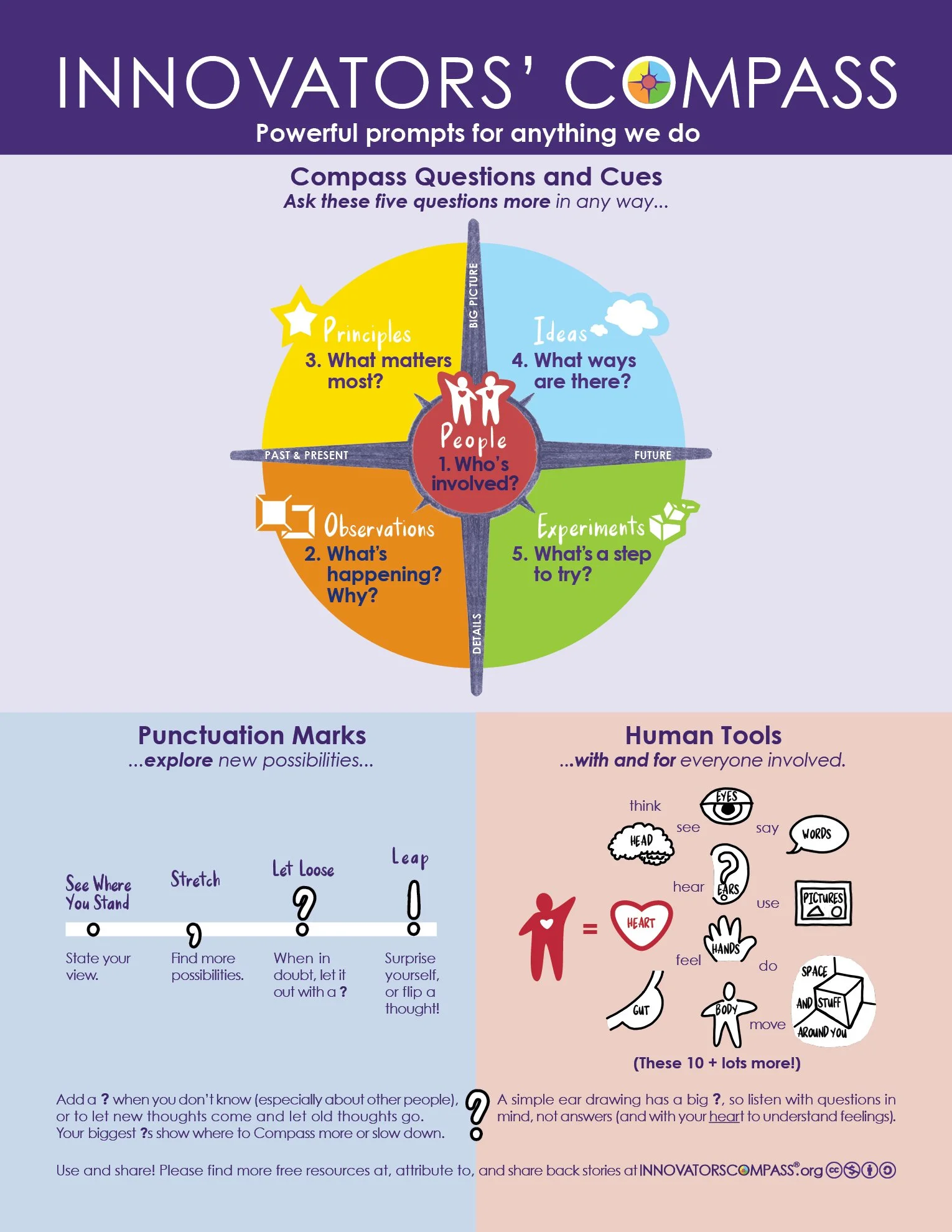Main version of the Compass poster.
Just start exploring these questions with and for the people involved.
In your head, on a scrap of paper, whiteboard, email, Google doc, or any of the worksheets or apps in Resources.
You can bounce around, letting each space spark the others, or go by the numbers—over seconds or over years.
You can toss your Compass, keep building on it, save it in an “atlas” of challenges you’ve navigated, or share it!
Tips from the Pocket Compass.
A few of the paths that people and processes take!
Go deeper for bigger challenges.
Explore new possibilities in each space. Use…
The word and picture cues on the Compass:
Other people and especially feelings in any of these questions.
Different sides and details of what’s happening for people.
Guiding stars for what matters most in whatever you do here.
A bigger picture of ideas, even cloud-like dreamy ones.
A small step with real details that’s OK if it flops so you’ll try it!More Punctuation, especially question marks.
When in doubt, let it out with a ? mark (especially when considering other people) and go find out. A ? mark helps new, even wild thoughts come—and helps let old ones go. Wonder as you wander!More of your and others’ human tools.
What if we go look and listen? Draw, move, or make? Check what our heart or gut says, what we feel?Any supporting tools you like! For example, an Empathy Map to record Observations.
Tips for Groups
Compass how you’ll Compass! Start with People—who’s involved? Consider, What’s happening? Are there a lot of unknown questions or complex tensions between those people or in your topic? What time, space, and supplies might you/they have? What might matter most for everyone to successfully contribute to this Compass?
What ways are there to do that, tapping into people’s tools? Some ideas are on the Groups Tips Sheet and in this video. For openly-discussable topics with limited time but lots of sticky notes, try “Sticky, then Speak—Read, Add, Repeat” (thanks Audrey O'Clair!) shown here, one question at a time, for everyone’s thoughts to be seen and heard.
Remember to start with small experiments for anything that's new (including Compassing). Try it yourself a couple of times before using it in an important group moment.
And as you collaborate, keep sensing the people, what’s happening and what matters most—e.g. do people need more time with a question, or to move to a different one?
Last of the six Compass Cue Cards.
Please use and share! And just…
Many years have gone into these tools, with the dream of making a difference—and they have.
Please use and share them, non-commercially. I ask only that you:
Credit innovatorscompass.org so others can find them.
Email or tweet your experiences for me and maybe others to learn from. (Bonus: answer some of these questions).
Ask others to do the same.
License specifics are here.




